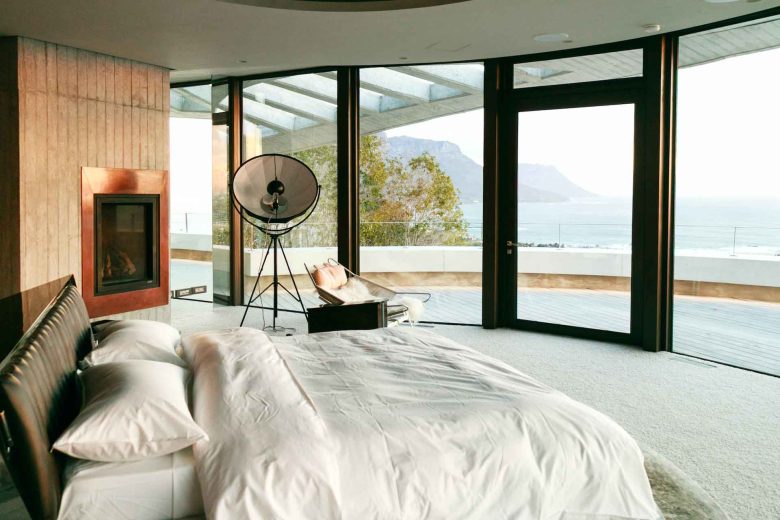Table of Contents
Understanding the Luxury Market
In the competitive landscape of luxury hospitality, hotels must consistently innovate to captivate their discerning clientele. Event marketing, when executed effectively, serves as a powerful tool to enhance brand perception and guest loyalty. This article delves into strategies for creating and marketing unique events that can become signature experiences, distinguishing luxury hotels in a crowded market.

Target Audience Insight
Luxury hotel guests are typically looking for more than just a place to stay; they seek an exclusive, memorable experience. Understanding the preferences and expectations of high-end clientele is crucial. These guests often value privacy, personalized service, and unique, culturally enriching experiences. Conducting market research to gather insights into guest preferences can guide the development of compelling events.
Brand Alignment
Every event should reflect and reinforce the hotel’s brand identity. Whether the hotel exudes old-world charm or contemporary luxury, the event must sync with these attributes to strengthen brand consistency. This alignment helps in creating a seamless experience that guests will associate with the hotel’s brand.
Crafting Signature Events
Concept Development
The first step in creating a signature event is to develop a unique concept that resonates with the target audience and aligns with the brand. This could range from exclusive art exhibitions and fashion shows to gourmet festivals and wellness retreats. The concept should promise something that cannot be found elsewhere, providing a strong incentive for guests to attend.
Exclusivity and Personalization
Luxury is synonymous with exclusivity. Offering personalized experiences, such as custom menus or bespoke entertainment, can make guests feel valued. Limited-access events or invite-only gatherings ensure that guests enjoy an exclusive atmosphere, which is often a key selling point for luxury clientele.
Integrating Local Culture
Incorporating local culture into events can significantly enhance their appeal. This could involve showcasing local artists, musicians, and chefs, or hosting events that celebrate local traditions and festivals. Such initiatives not only offer guests a deeper connection with the location but also promote sustainable tourism by involving local communities.
Marketing Strategies
Multi-Channel Approach
Effective marketing of these events involves a multi-channel approach. High-quality, visually appealing content should be distributed across various platforms, including social media, the hotel’s website, email newsletters, and luxury travel blogs. Video teasers of the event can be particularly effective in capturing attention.
Email Marketing: Engaging Luxury Clients Effectively
Email marketing remains a cornerstone of effective communication in the luxury hotel sector, serving as a direct and personalized channel to engage with past, present, and future guests. This section explores how luxury hotels can optimize email marketing to promote signature events and foster deeper connections with their clientele.
Segmenting Your Audience
Successful email campaigns begin with understanding that not all guests have the same preferences or interests. Segmenting the email list according to guest demographics, past booking history, and expressed interests allows for more targeted and relevant communications. For instance, guests who previously attended a wine-tasting event can be targeted for a similar upcoming event or perhaps a gourmet dining experience, enhancing the relevance of the message.
Crafting Compelling Content
The content of the emails should embody the elegance and exclusivity of the luxury brand. High-quality images and well-crafted narratives that evoke the allure of the event can make a significant impact. Each email creative should include a clear, compelling call to action—whether it’s to book a stay during the event, register for the event itself, or learn more about the event details. Personalizing emails with the recipient’s name and past preferences can also increase engagement and feelings of exclusivity.
Timing and Frequency
The timing and frequency of emails are crucial in capturing interest without overwhelming the recipient. Announcing an event should ideally happen after careful consideration of guest booking patterns and seasonality. A sequence of emails leading up to the event can build anticipation—starting with a save-the-date, followed by detailed previews of the event, and finally a last-chance reminder. For major events, starting the campaign a few months in advance allows potential guests to plan their visit, while shorter, more frequent reminders can keep the event top-of-mind as the date approaches.
Utilizing Automation
Email automation can streamline the communication process, especially for large-scale and repeat events. Automation tools can help send out emails at predefined times, respond to guest inquiries, and even send personalized thank-you messages post-event. Automated follow-ups asking for feedback can provide valuable insights for improving future events and tailoring offers.
Analyzing Performance
To continually improve email marketing effectiveness, luxury hotels should rigorously analyze the performance of their campaigns. Key metrics to monitor include open rates, click-through rates, conversion rates, and revenue generated per email campaign. This data not only helps in understanding what resonates with the audience but also in fine-tuning the segmentation, timing, and content of future emails.
Integrating with Other Marketing Channels
While powerful on its own, email marketing should be integrated with other marketing efforts for maximum impact. Links to the hotel’s social media profiles, blog posts about the event, or a video tour of event highlights can enhance engagement across platforms. Additionally, exclusive offers available only through social media can drive email subscribers to follow other channels, creating a cohesive cross-channel marketing ecosystem.
Collaboration and Sponsorship
Partnering with high-profile brands or influencers can elevate the perceived value of the event. These partnerships can also expand the event’s reach to a broader audience. For instance, a luxury watch brand sponsoring a gala dinner can attract watch enthusiasts who may not have previously considered the hotel.
Tailored Promotions
Offering tailored promotions to past guests or loyalty program members can foster an ongoing relationship. Early-bird offers or special packages that include event access and a luxury stay can be tempting incentives for guests planning a return visit.
Leveraging Technology
Virtual Engagement
To reach a broader audience, luxury hotels can offer virtual access to events through live streaming or virtual reality (VR) experiences. This not only increases the event’s reach but also caters to guests who cannot attend in person.
Data-Driven Insights
Utilizing data analytics to track the success of events and guest preferences can help in refining future events. Feedback collected through post-event surveys and social media engagement metrics can provide valuable insights for improvement.
Operational Execution
Flawless Planning
The success of any event hinges on meticulous planning and flawless execution. Luxury hotels must ensure every detail is managed to perfection, from the decor to the service. A dedicated event team should oversee the planning process, ensuring that every element aligns with the luxury standards expected by guests.
Staff Training
Empowering staff with the necessary training to manage high-profile events is essential. They should be well-versed in the nuances of customer service expected at luxury events, ensuring every guest interaction is polished and professional.
Conclusion
Creating and marketing signature events in luxury hotels involves a combination of creativity, strategic marketing, and impeccable execution. By designing exclusive, memorable events that resonate with the luxury market and reflect the hotel’s brand, luxury hotels can enhance their appeal and cultivate lasting guest relationships. In the realm of luxury hotel marketing, email remains an invaluable tool for creating personalized, direct, and engaging connections with guests. By leveraging detailed audience segmentation, crafting captivating content, and employing strategic timing, luxury hotels can effectively use email to promote their signature events, enhance overall guest experience, and significantly boost the hotel’s reputation and profitability in the luxury market. Coupled with thorough analysis and integration with other marketing channels, these email campaigns contribute to the success of event marketing by designing exclusive, memorable events that resonate with the luxury market and reflect the hotel’s brand, ultimately enhancing appeal and cultivating lasting guest relationships. Having your hotel marketing agency implement these strategies transforms events into hallmark experiences that guests eagerly anticipate, further solidifying the hotel’s stature in the competitive luxury hospitality industry.

